Table of Contents
ToggleManaging money can feel like trying to tame a wild beast. One minute you’re riding high on a wave of savings, and the next, you’re drowning in debt. But fear not! Mastering personal finance doesn’t require a degree in rocket science or a crystal ball. With the right tips, anyone can turn their financial chaos into a well-oiled machine.
Importance Of Personal Finance
Effective personal finance management is crucial for achieving financial stability and independence. It enables individuals to save for emergencies, retirement, and major life goals. Understanding personal finance fosters better spending habits, encouraging individuals to live within their means and avoid excessive debt.
Analyzing income and expenses plays a significant role in crafting a realistic budget. Individuals can track where money goes, identifying areas for potential savings. Utilizing budgeting apps and tools simplifies this process, making it easier to monitor financial habits.
Establishing financial goals provides direction and motivation. Short-term goals might include saving for a vacation or paying off credit card debt. Long-term goals could involve building a retirement fund or purchasing a home.
Emergency funds act as a financial safety net. Experts recommend having three to six months’ worth of living expenses saved. This cushion can mitigate the stress associated with unexpected expenses, such as medical bills or job loss.
Investing knowledge is equally important. Learning about investment options can yield higher returns than traditional savings accounts over time. Stocks, bonds, and mutual funds offer various risk levels and potential returns.
Credit management impacts overall financial health. Understanding credit scores and reports helps individuals make informed decisions regarding loans. Regularly checking credit reports enables proactive management of credit health.
Comprehending personal finance also leads to informed decisions regarding loans and mortgages. Comparing interest rates, terms, and repayment options empowers individuals to make savvy financial choices.
Having a solid grasp of personal finance ensures preparedness for the future. Whether planning for education, retirement, or emergencies, effective management leads to improved financial well-being.
Setting Financial Goals
Establishing financial goals is essential for effective money management. Goals create a clear path towards financial stability and motivate individuals to track their progress.
Short-Term Goals
Short-term goals typically cover a timeframe of one year or less. Saving for a vacation, creating an emergency fund, or paying off credit card debt often falls into this category. Setting specific targets, like saving $1,000 for a trip within six months, provides accountability and aids in maintaining focus. Prioritizing these goals often leads to improved cash flow. Tracking these achievements using budgeting apps ensures that progress remains visible, making adjustments as necessary simple.
Long-Term Goals
Long-term goals extend beyond one year, often looking toward major life events. Retirement savings, purchasing a home, or funding a child’s education represent common long-term aspirations. Shedding light on the power of compound interest demonstrates how consistent contributions to retirement accounts can significantly enhance savings over time. An example includes saving $300 monthly over 30 years, potentially resulting in over $300,000 at retirement. Developing a strategic plan for these objectives creates a robust financial future, emphasizing the importance of starting early regardless of current financial standing.
Budgeting Strategies
Establishing a solid budgeting strategy creates a foundation for effective personal finance management. Adopting the right methods can significantly improve financial stability.
Creating A Budget
Creating a budget begins with identifying income and categorizing expenses. Allocate funds for necessities like housing, utilities, and groceries first. Establish clear limits for discretionary items such as dining out or entertainment. Using the 50/30/20 rule helps simplify this process: allocate 50% for needs, 30% for wants, and 20% for savings and debt repayment. Review and adjust the budget monthly to accommodate changing circumstances and ensure it remains aligned with financial goals.
Tracking Expenses
Tracking expenses allows individuals to gain insights into spending habits. Utilize budgeting apps or spreadsheets for real-time updates on expenditures. Regularly reviewing transactions highlights patterns that may need adjustment. Group expenses into categories to identify areas where overspending occurs. Understanding these patterns assists with making meaningful changes to improve financial health. Aim to match actual spending with the budget to stay accountable and maintain control over finances.
Saving Techniques
Effective saving techniques enhance financial stability. Practicing these strategies enables individuals to build security and achieve long-term goals.
Emergency Funds
Establishing an emergency fund provides a safety net for unexpected expenses. Financial experts recommend saving three to six months’ worth of living expenses. This cushion alleviates stress during unforeseen circumstances like medical emergencies or job loss. Individuals can start small by setting aside a specific percentage of their monthly income. Gradually increasing contributions helps build a substantial fund over time.
High-Interest Savings Accounts
Utilizing high-interest savings accounts optimizes savings potential. These accounts offer higher interest rates compared to traditional savings accounts. As money earns compound interest, individuals achieve significant growth on their savings. Choosing accounts with no monthly fees or minimum balance requirements increases access to funds. Regularly depositing extra income or bonuses further boosts savings, ensuring financial goals are reached more efficiently.
Investing Basics
Investing knowledge forms a crucial part of personal finance management. Understanding various investment options helps build wealth over time.
Types Of Investments
Individuals can explore several types of investments, including stocks, bonds, real estate, and mutual funds. Stocks offer ownership in companies and can generate significant returns. Bonds provide fixed income through interest payments and are generally lower risk. Real estate involves purchasing properties to earn rental income or appreciate in value. Mutual funds pool money from multiple investors to invest in diverse assets, spreading risk while creating opportunities for growth. Each investment type carries different risk levels and potential returns, allowing investors to tailor their portfolios to fit personal goals and risk tolerance.
Risk Management
Effective risk management is essential for successful investing. Understanding one’s risk profile helps create a balanced investment strategy. Diversification plays a critical role by spreading investments across various asset classes, minimizing potential losses. Investors can also use risk assessment tools to analyze potential market fluctuations. Setting specific investment goals aids in determining acceptable risk levels. Regular portfolio reviews ensure alignment with financial objectives and necessary adjustments. Finally, implementing risk management strategies protects against sudden market downturns, safeguarding investments.
Debt Management
Managing debt effectively can reduce financial stress and pave the way for stability. Implementing specific strategies is crucial for individuals seeking to improve their financial situation.
Debt Reduction Strategies
Establishing a debt reduction plan helps prioritize payments. The snowball method, where smaller debts are paid off first, can provide quick wins and boost motivation. Conversely, the avalanche method targets debts with the highest interest rates, saving money over time. Creating a budget that allocates funds for debt repayment ensures accountability. Setting measurable goals can enhance focus, while tracking progress reinforces commitment. Individuals may also consider negotiating with creditors for lower interest rates or creating a payment plan that fits their budget. Consistent payment habits result in significant improvements in overall debt levels.
Credit Score Improvement
Improving credit scores requires a strategic approach. Paying bills on time constitutes one of the most impactful factors influencing credit ratings. Keeping credit card balances below 30% of the available limit also plays a vital role in maintaining a healthy score. Regularly reviewing credit reports helps identify inaccuracies that negatively affect scores. Disputing errors can lead to corrections and eventual score improvement. Limiting new credit inquiries reduces the potential for score drops. Additionally, maintaining older accounts demonstrates responsible credit management, positively influencing overall creditworthiness. Building good habits supports sustained improvement in credit scores over time.
Mastering personal finance is a journey that can lead to greater financial security and independence. By implementing the tips shared in this article, individuals can take meaningful steps toward transforming their financial lives.
Establishing a budget setting achievable goals and understanding investment options are essential components of this process. Building an emergency fund and managing debt effectively will further enhance financial stability.
With dedication and the right strategies in place anyone can tame their financial beast and pave the way for a brighter financial future. Taking control of personal finances isn’t just about numbers; it’s about creating a life of freedom and opportunity.








